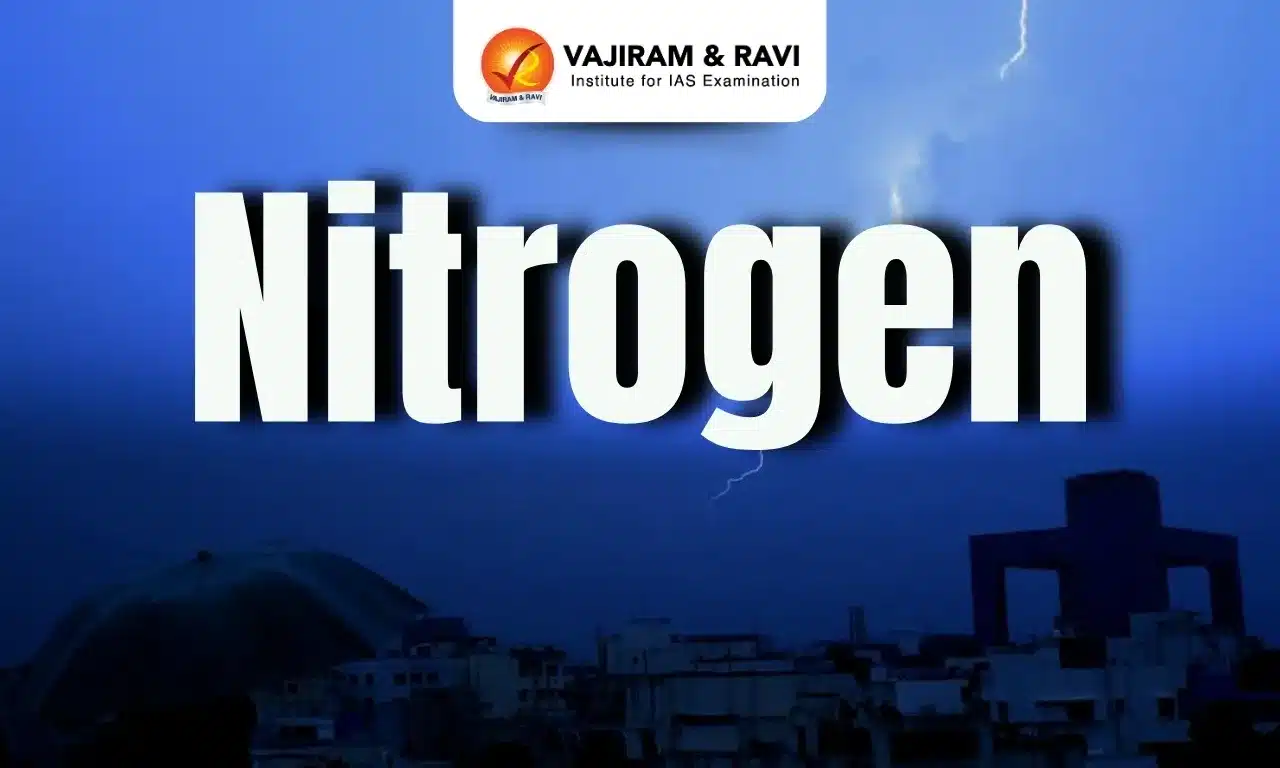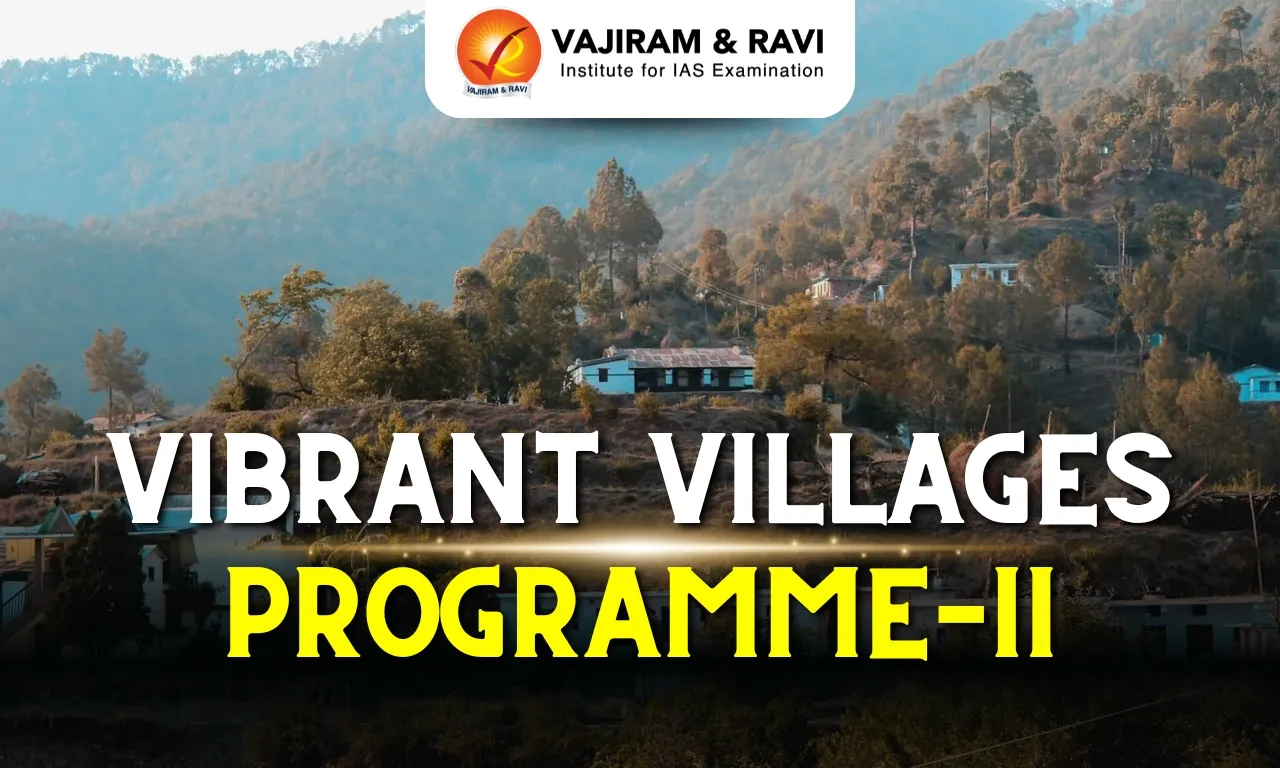Nitrogen Latest News
India, the world’s second-largest emitter of N₂O after China, faces climate risks as N₂O has 300 times the global warming potential of CO₂.
About Nitrogen
- Nitrogen is the most abundant atmospheric gas, constituting ~78% of Earth’s atmosphere.
- Nitrogen is vital for forming DNA, ATP (cellular energy currency), proteins, chlorophyll, and acts as a neurotransmitter via nitric oxide (NO).
Nitrogen Cycle: Natural Balancing Act
- Atmospheric nitrogen (N₂) is inert and unusable by plants or animals.
- Plants rely on diazotrophs (N-fixing bacteria) through symbiotic association (e.g., in legumes).
- Nitrifying bacteria convert ammonia into nitrites (NO₂⁻) and then nitrates (NO₃⁻) – the form plants can absorb.
- Nitrification: Ammonia → Nitrites → Nitrates (plant-usable form).
- Denitrification returns excess nitrates back to the atmosphere, maintaining the natural nitrogen cycle.
Haber-Bosch Process
- Developed in the early 20th century, allowed industrial fixation of nitrogen to produce ammonia.
- Uses fossil fuels, high heat and pressure, and an iron catalyst.
- Enabled synthetic fertiliser revolution → contributed to Green Revolution and exponential population growth.
Environmental Risks of Excess Nitrogen (Latent Time-Bomb)
- Reactive nitrogen (ammonia, nitrate, nitrous oxide) is now overproduced through chemical fertilisers.
- 80% of applied nitrogen is lost to the environment via leaching and emissions, causing:
- Eutrophication of water bodies → Algal blooms, Dead Zones (e.g., Gulf of Mexico).
- Soil acidification and air pollution from NOx emissions.
- Formation of ground-level ozone and acid rain.
- N₂O (Nitrous oxide) is now the third most potent greenhouse gas after CO₂ and CH₄.
Source: TH
Last updated on February, 2026
→ UPSC Notification 2026 is now out on the official website at upsconline.nic.in.
→ UPSC IFoS Notification 2026 is now out on the official website at upsconline.nic.in.
→ UPSC Calendar 2026 has been released.
→ UPSC Final Result 2025 is expected to be released in the second week of April 2026.
→ Check out the latest UPSC Syllabus 2026 here.
→ Join Vajiram & Ravi’s Interview Guidance Programme for expert help to crack your final UPSC stage.
→ UPSC Mains Result 2025 is now out.
→ UPSC Prelims 2026 will be conducted on 24th May, 2026 & UPSC Mains 2026 will be conducted on 21st August 2026.
→ The UPSC Selection Process is of 3 stages-Prelims, Mains and Interview.
→ Prepare effectively with Vajiram & Ravi’s UPSC Prelims Test Series 2026 featuring full-length mock tests, detailed solutions, and performance analysis.
→ Enroll in Vajiram & Ravi’s UPSC Mains Test Series 2026 for structured answer writing practice, expert evaluation, and exam-oriented feedback.
→ Join Vajiram & Ravi’s Best UPSC Mentorship Program for personalized guidance, strategy planning, and one-to-one support from experienced mentors.
→ Check UPSC Marksheet 2024 Here.
→ UPSC Toppers List 2024 is released now. Shakti Dubey is UPSC AIR 1 2024 Topper.
→ Also check Best UPSC Coaching in India
Nitrogen FAQs
Q1. What is the most abundant gas in Earth's atmosphere?+
Q2. What is the Nitrogen Cycle?+
Q3. Name an example of nitrogen-fixing bacteria.+




















